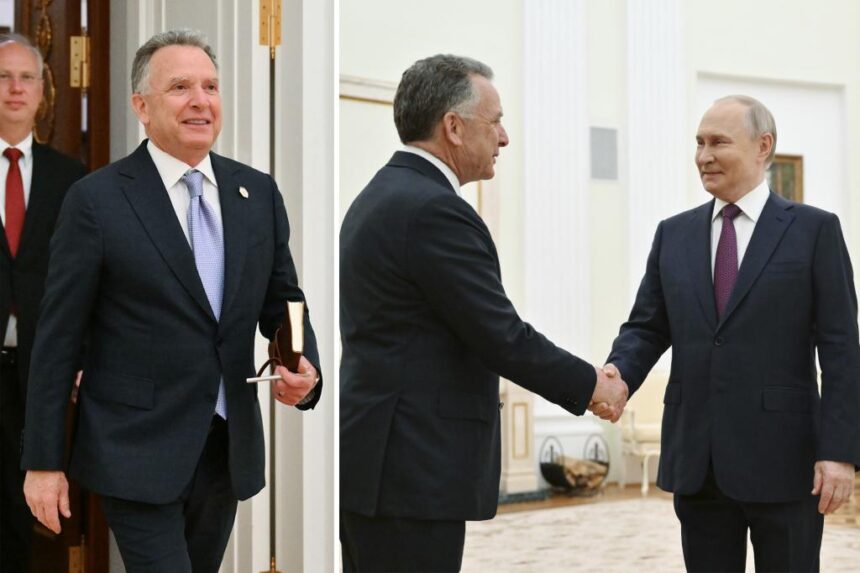President Trump’s special envoy to the Middle East, Steve Witkoff, has raised concerns among administration insiders with his unconventional approach to negotiating with America’s adversaries. The 68-year-old former real estate attorney and investor has taken on the role of negotiating with both Russian President Vladimir Putin and handling the Middle East portfolio, a move that has left many questioning his abilities.
Witkoff has been criticized for conducting high-level meetings alone, even relying on Kremlin translators at times, which goes against traditional diplomatic protocol. During a recent meeting with Putin, Witkoff greeted the Russian leader without the usual team of advisers and experts accompanying him, leading to concerns about his preparedness for such important negotiations.
One administration insider bluntly described Witkoff as a “bumbling f—ing idiot,” highlighting the lack of confidence in his abilities to handle such delicate negotiations. Critics point out that Witkoff’s lack of diplomatic experience and tendency to engage in talks without a proper understanding of the complexities involved could be detrimental to US interests.
In his role as Middle East special envoy, Witkoff has attempted to negotiate a cease-fire and hostage release deal between Israel and Hamas, as well as a revised agreement with Iran regarding its nuclear weapons program. However, his efforts have faced challenges, with a failed attempt to extend a cease-fire with Hamas leading to its collapse.
Many have expressed concerns about Witkoff’s approach to negotiations, with some questioning his ability to grasp the motivations and ideologies of groups like Hamas and Iran. Critics argue that his lack of experience in diplomacy and his tendency to trust Russian narratives without verification could be harmful to US interests in the long run.
Furthermore, Witkoff’s involvement in negotiations with both Russia and Ukraine has also raised eyebrows, as his close ties to Trump have led to concerns about his impartiality in dealing with both sides. Some experts have called for a more experienced diplomat to handle such sensitive negotiations, emphasizing the need for someone who can bridge the gap between the conflicting parties.
Overall, Witkoff’s handling of negotiations with America’s adversaries has sparked criticism and raised doubts about his effectiveness in representing US interests on the world stage. As the administration grapples with complex issues in the Middle East and Europe, the choice of who leads these negotiations will be crucial in determining the outcome of these delicate diplomatic efforts.








